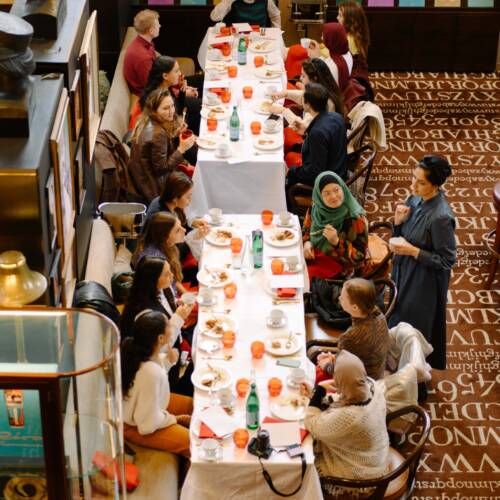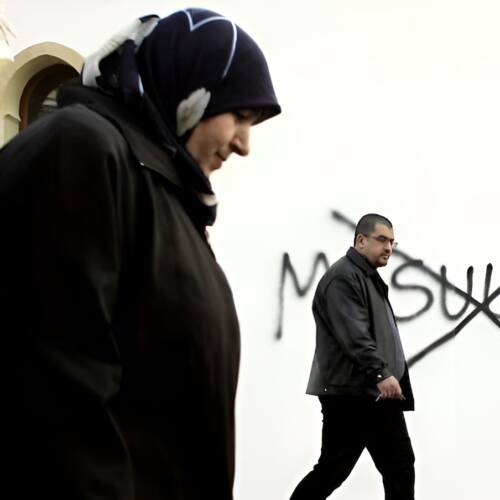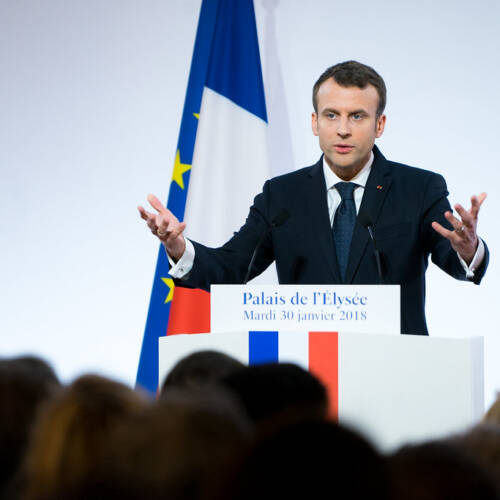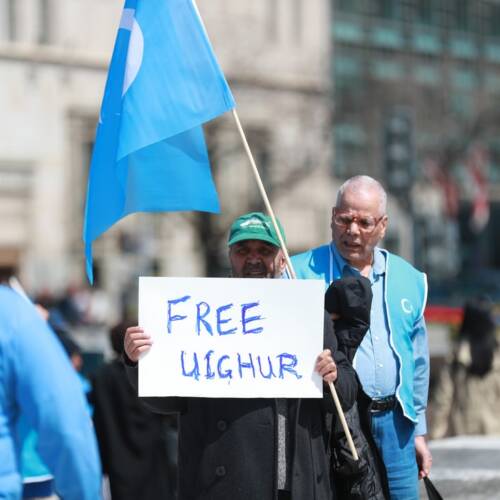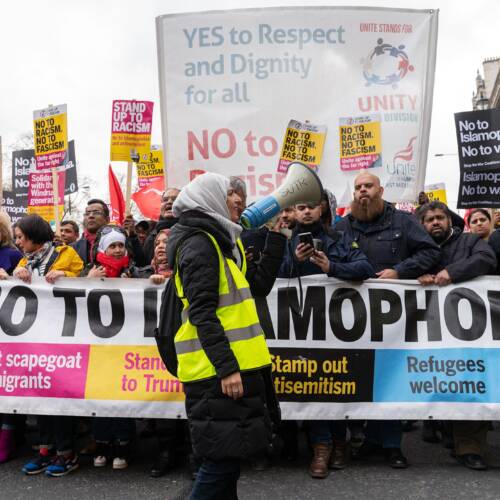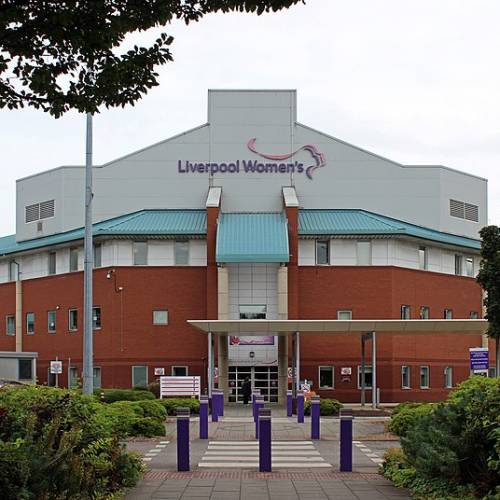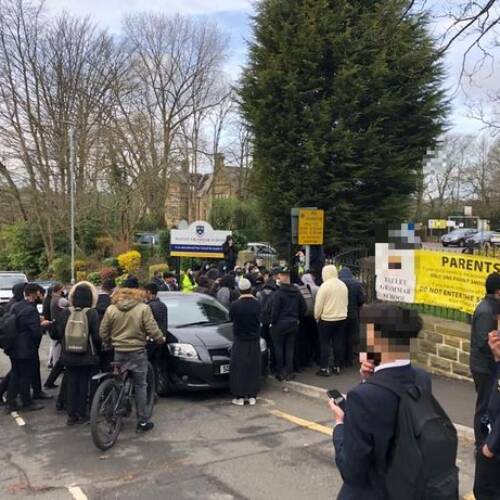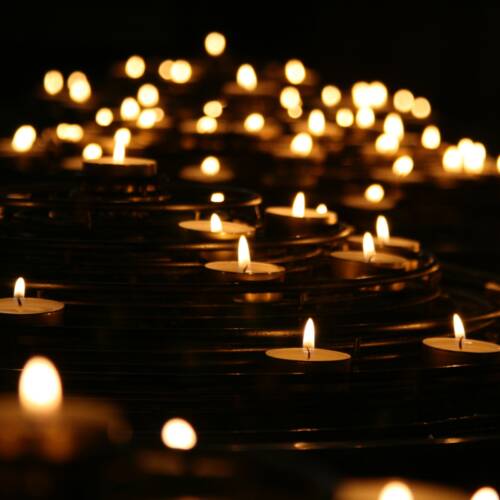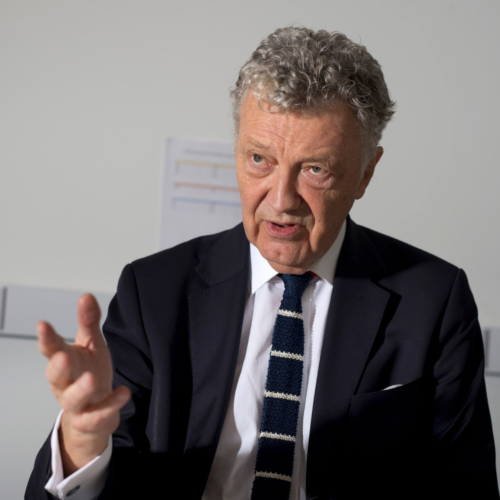
Far-Right Extremism: Conspiracies, Coronavirus and Ramadan
29 Apr 2020A recent report commissioned by the Anti-Muslim Hatred Working Group has exposed a snapshot of the conspiracy theories, fake news and disinformation pushed by far-right extremists against Muslims across the UK. Written by one of the country’s leading criminologists, Professor Imran Awan of Birmingham City University and Roxana Khan-Williams of Hope Not Hate, the report is another damning account of the online abuse faced by Muslims on a daily basis.
But as you sit in self-isolation and read this, I’m sure some of you are thinking, “what’s new?” Indeed, we know this hate exists, we live through it and we experience it. What this report allows us to do, however, is to again remind wider society that vile Islamophobia is growing and more must be done to challenge it. It is unacceptable and it has to end.
One of the core myths peddled by far-right extremists, as detailed in the report, is the notion that “Muslims are not adhering to the lockdown”. On Telegram, WhatsApp, Facebook and Twitter there are streams of videos, memes and snippets showing Muslims coming out of mosques or engaging in “secret prayers”. But these have been proven as fake.
West Midlands Police debunked a popular video in far-right circles about a mosque being open in Birmingham (they confirmed it was in fact shut), while Tell Mama debunked similar claims about a mosque opening for Juma’ah prayers in Wembley. The truth is, the vast majority of us actually haven’t been to a mosque in the past month, and allegations to suggest otherwise are comical! Having said that, I heard an 8-year-old kid from Bradford built a mosque in his home out of cardboard and sweet wrappers, so I guess that counts? Maybe he’s holding those sneaky “secret prayers”.
In fact, there have been great efforts by the likes of MCB, MINAB, BBSI, BIMA, MDA, various councils of mosques and faith leaders to proactively promote responsible and necessary public health advice to their congregations – most of them did so a week or so before social distancing measures were recommended and imposed by government. In recognition of the truth that Britain’s Muslims are away from their mosques (because they’re closed!) 14 BBC Local Radio stations have broadcast the call to prayer weekly, with a different Imam leading prayers and delivering sermons each week.
Another myth being peddled is that “Ramadan will be a problem”. What do far-right extremists expect will happen exactly? We can take some satisfaction in knowing that the hate preachers would be really cheesed off if they actually watched the news: on the day before Ramadan, Health Secretary Matt Hancock praised British Muslims during Downing Street’s daily press briefing for staying home during the lockdown, and for preparing to make changes and sacrifices to their practises during Ramadan, while recognising the importance of iftar, tarawih and Eid. Thank you, Mr Hancock!
While social media sites like Facebook, Twitter and others have been used to spread misinformation about Muslims during lockdown by some, they have also been used to share positive and helpful information about Ramadan and self-isolation. I hosted the first live chat show for Urban Muslimz, “Life in Lockdown” to discuss the challenges facing our communities and how we can adapt to the current situation. I know that many initiatives have been arranged by countless others through similar means to discuss fasting, loneliness, mental health, staying fit and looking after the young and elderly. There are films for kids, advice sessions for parents and (sadly) webinars on will writing, registering deaths and conducting burials. There have been massive efforts made by Muslim communities up and down the country to organise online activities for Ramadan, during what is a completely unprecedented time when we would otherwise be together to pray, eat and celebrate with extended family, neighbours and friends.
Aside from what appears to be complete nonsense, fake news, lies and attempts to stir up hatred, there are of course real-world implications when Muslims are scapegoated in this way. As the report states, “evidence shows that anti-Muslim hate crimes have increased significantly following ‘trigger events’ -– for example; in the current context, a societal inflection point such as COVID-19 where Muslims are blamed for exacerbating the pandemic could be a ‘trigger event’. These events have a resultant impact both online, where Muslims are exposed to digital forms of bigotry and hate, and offline, where physical attacks become more prevalent. You only need to look at the spike in hate crimes committed against Muslims after these ‘trigger events’ to see how that manifests.
The spread of such conspiracy theories and fake news, as Professor Imran Awan and Roxana Khan-Williams state, illustrates “the ways in which Muslim identities can be transformed across time and space”. The videos are, simply put, fake. They have no validity in argument or truth in representation but through this, Muslims are construed as “the deviant other” or a “problem-group”. It understands Muslims as one monolithic block despite the diversity of their sect-based and ethnic identities, political persuasions or socio-economic status. Mosques too are categorised by far-right extremists as problematic spaces, even for an 8 year old kid at home. Unfortunately, when these false narratives are exposed the value of truth feels lower than what it was before because the damage is already done.
While we Muslims will instantly recognise and understand what the report highlights on paper, it must now serve as a rallying cry for us to continue doing the good work that we are doing while challenging such hatred in all its forms. Let us remember also that Ramadan is a holy month of prayer, self-reflection, selflessness and charity. As we give generously for those who have experienced tremendous hardship during COVID-19, remember to stay indoors and follow public health advice, so that we may continue to serve our communities and wider society during this holy month.






